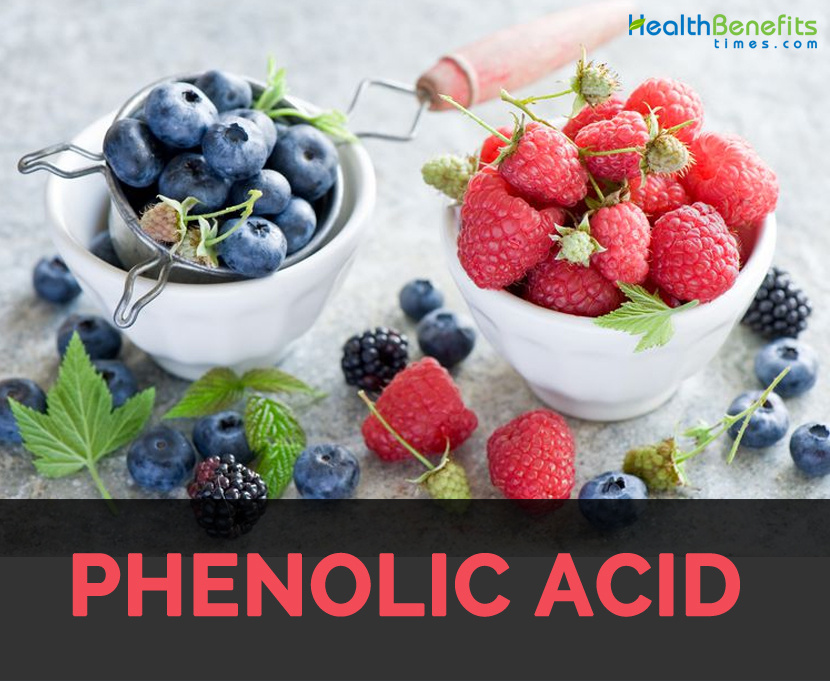 Phenolic acids also known as phenolcarboxylic acids are the type of aromatic acid compound. It contains a phenolic ring and organic carboxylic acid function. The two essential naturally occurring types are hydroxycinnamic acids and hydroxybenzoic acids that are derived from non-phenolic molecules of cinnamic and benzoic acid respectively. Hydroxybenzoic acids include protocatechuic, p-hydroxybenzoic, gallic, syringic and vanillic acids with common C6-C1 structure. On the other hand, Hydroxycinnamic acids are aromatic compounds having three carbon side chain (C6-C3) having ferulic, caffeic, sinapic and p-coumaric acids being the common.
Phenolic acids also known as phenolcarboxylic acids are the type of aromatic acid compound. It contains a phenolic ring and organic carboxylic acid function. The two essential naturally occurring types are hydroxycinnamic acids and hydroxybenzoic acids that are derived from non-phenolic molecules of cinnamic and benzoic acid respectively. Hydroxybenzoic acids include protocatechuic, p-hydroxybenzoic, gallic, syringic and vanillic acids with common C6-C1 structure. On the other hand, Hydroxycinnamic acids are aromatic compounds having three carbon side chain (C6-C3) having ferulic, caffeic, sinapic and p-coumaric acids being the common.
The class phytochemicals include anthocyanins, flavanones, flavones and isoflavones. Phenolic acid prevent plants from diseases and supports its cell growth. Believed that people when consume plants rich in phenolic acids, it has antioxidant benefits which prevents diseases such as cancers and heart disease. Different types of phenolic acids are found in nature and are divided into two categories: cinnamic acid derivatives such as ferulic acid and caffeic acid or benzoic derivatives such as gallic acid. Foods with high content of phenolic acids are beneficial for overall health.
Balanced diet contains abundant phenolic acids. Adequate intake of vegetables, fruits and whole grains helps to get plenty amount of it. Foods rich in phenolic acids include berries, mangoes, citrus fruits, apples, cherries, plums, onions, kiwis, red wine, coffee, tea and flour made from whole wheat, corn, rice and oats.
Dietary sources
Foods with high content of phenolic acids include:
- Artichokes
- Apples
- Barley
- Broccoli
- Buckwheat
- Berries
- Cabbage
- Chiles
- Celery
- Cocoa
- Citrus fruits
- Kale
- Legumes
- Onions
- Oats
- Potatoes
- Peaches
- Rye
- Soy
- Tomatoes
References:
